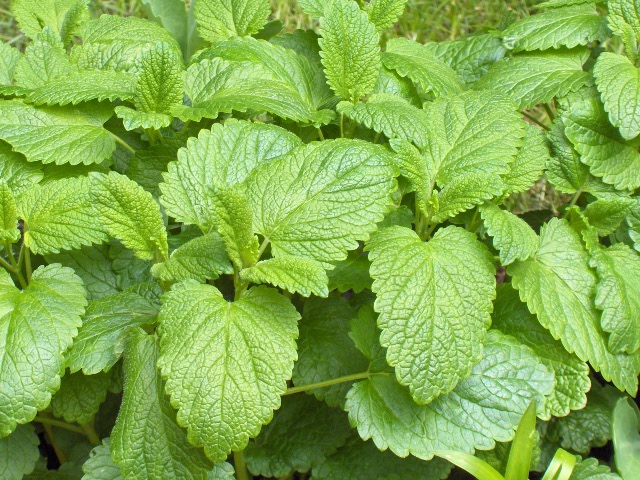It is well known that oils of aromatic herbs which include all the mints, lemon balm and sage serve the function of putting up a protective barrier to plants against infective agents such as bacteria and viruses. In recent years research has given scientific credence to the possibility that this effect can be imparted to lessening the severity and frequency of viral infective diseases in humans.
Recently I’ve come across of couple of herb news headlines regarding the use of lemon balm (Melissa officinalis) and other lamiaceae (mint) family herbs to treat herpes.
Many herbalists already know that virucidal extracts of lemon balm have been repeatedly reported to effectively treat herpes simplex virus type 1 (HSV-1) which are common ulcerative cold sores and type 2 (HSV-2) which is classified as the most common sexually transmitted disease affecting human male and female genitalia.
(http://www.umm.edu/altmed/articles/lemon-balm-000261.htm) In one study of 116 people with HSV1, those who applied lemon balm cream to their lip sores experienced significant improvement in redness and swelling after only two days. Other symptoms, such as pain and scabbing, did not improve. Both the patients and their doctors reported that the lemon balm ointment was highly effective in shortening the span and lessening the recurrence of HSV 1 and HSV 2 viral infections.
In my own clinical experience, I have found that stress, emotional as well as metabolic stress induced by the use of sugar, alcohol and caffeine are triggers that will cause herpes outbreaks to occur. By restricting these from the diet and the use of anti-viral herbs internally and externally in the form of ointments, I have had patients experience complete remission of herpes simplex 1 and 2.
Certainly making an anti-herpes salve with lemon balm is reasonable, but the studies that indicate its efficacy use a highly concentrated extract of lemon balm. In other words, harvesting the fresh plant and infusing oil with it to make your salve probably won’t cut it. Lemon balm essential oil would be your best bet, but it is incredibly costly: a mere eighth of an ounce may command as much as $50!
If you have the means and materials to make such a salve or cream, best results are obtained when it is applied at the very earliest stages of a herpes outbreak. Frequent application between outbreaks will lessen the occurrence of subsequent ones.
(If you’re looking for another anti-herpes ingredient, and a more accessible one at that, research also shows that propolis — a substance made by bees from tree resin — may be a good choice for treatment of genital herpes. You can make a propolis salve or cream from scratch or try purchasing some ready-made neem cream and add extract of propolis to it. The 3% propolis extract used in the study linked above is probably a minimum and the effect would be improved if it was higher — say 6% or so. )
The therapeutic use of Lemon balm extends far back into antiquity. I commonly have used it as a diaphoretic tea for colds and flus of both adults and children. It also is used as a calmative and anti-depression, anti-anxiety herb. The late Dr. Christopher regarded it as the ideal herb for children in the sense that it has potent effects for treating the most common childhood diseases. Its calming and centering effects aid in settling the jitteriness that is an impediment to a healthy attention span. Finally, last but not least, most children do not object to its pleasant ‘˜lemony’ aroma and flavor.
While we’re on the topic of lemon balm, check out this herbal proving conducted and reported by East West School of Planetary Herbology graduate Mara Ribbin for a closer look at this wonderful herb.

